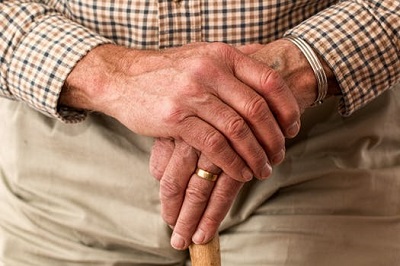Almost one-and-a-half million over-65s feel they don’t have control of their lives, while almost a million say that life rarely or never has any meaning for them.
That’s according to new analysis from older people’s charity Age UK, which is warning of the risks of getting into a self-destructive rut as we age. It also found that these potentially damaging feelings are more prevalent among the oldest age groups, with nearly one in five over-85s thinking their life rarely or never has meaning, compared to one in ten people aged 55 to 65.
 Now Age UK is encouraging older people to take steps to avoid getting into a self-destructive rut, from which it can be difficult to escape. More than that, it is calling on everyone to do more to support older people in recognising their self-worth.
Now Age UK is encouraging older people to take steps to avoid getting into a self-destructive rut, from which it can be difficult to escape. More than that, it is calling on everyone to do more to support older people in recognising their self-worth.
A new report from the charity, called “Struggling to Cope with Later Life”, explores these issues in greater depth. It includes a checklist of tips for older people and those around them on how to avoid getting dragged down as they age, and how to recover if this happens. Based on interviews with older people, the research finds that some who have led busy and purposeful lives can end up feeling their contributions are long forgotten and they no longer count for anything.
Interviews with older people in the report showed one key factor dragging them down was their perception that our society does not really value older people, and generally takes a negative view of ageing. This formed the difficult backdrop to the problems they were experiencing and helped to compound them, intensifying their feelings of hopelessness.
While more resilient older people might be able to shrug off such negative perceptions, more vulnerable individuals were clearly unable to do so. Age UK is therefore hoping the report will raise public awareness that ageism really hurts some older people and diminishes their quality of life.
Age UK's top tips for older people who get stuck in a rut, and for those who care about them or work with them, are:
- Listen to older people’s histories and value their contributions
- Understand the causes and spot the danger signs
- Use a person-centred approach that starts where older people are
- Family and friends can be a life line – support them to be so
- Find a way to return purpose to life
- Emotional support often needs backing up with practical action
- Professionals can make a big difference – but need the time to be able to do so
Caroline Abrahams, Age UK’s Charity Director, said: “Everyone has their off days, but for a significant minority of older people life appears to hold very little meaning or pleasure at all, and an unfortunate few get stuck in a self-destructive rut from which they just cannot escape. It’s in all our interests to change this and Age UK is firmly of the view that everyone deserves to be valued for who they are today, as well as who they have been in the past and may become in the future, regardless of their age.
“We can all do more to support older people we know and even when an older person has lost hope there are things that can be done to help, practically and emotionally, as our report shows. But perhaps the most important message from our research is that we all need to realise that the ageism that is all too frequent in our society does real harm to some older people and makes them miserable and even unwell, even if more resilient older individuals are apparently unscathed.
“It’s brilliant that in many ways our society is a lot more tolerant and inclusive than it has ever been before, and yet it is still seen as socially acceptable by some to stereotype and denigrate older people in ways that would be considered totally unacceptable if the same behaviour occurred in the context of gender or race. Our report reinforces the fact that it’s high time ageism was consigned to the past, along with all other forms of discrimination.”
